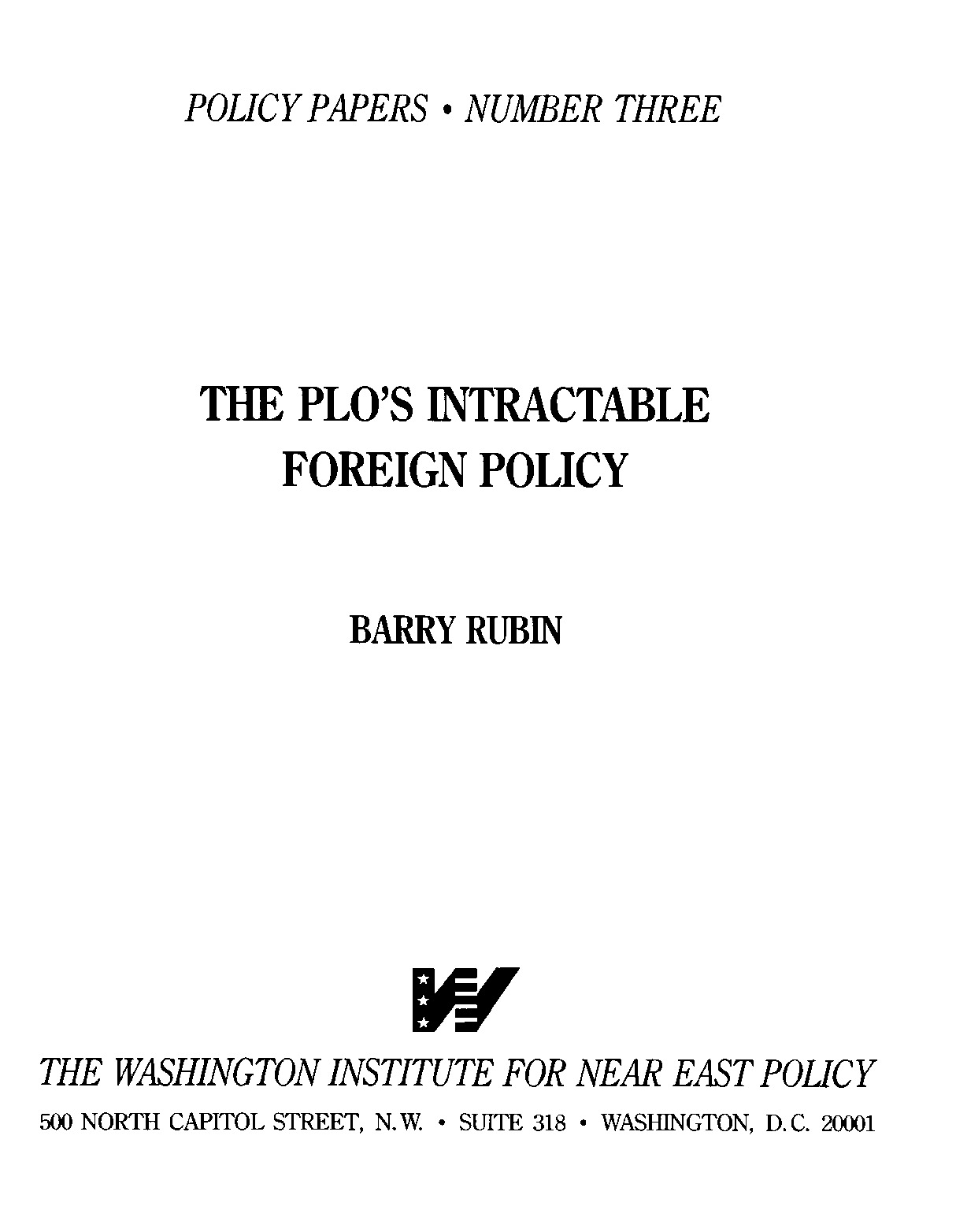Executive Summary
In 1985, the Middle East peace process came to depend upon the transformation of the PLO into a suitable partner for King Hussein in negotiations with Israel. Throughout the year, however, the PLO proved itself yet again both unwilling and incapable of playing that role. In victory or defeat, united or divided, the PLO's foreign policy remains intractable.
This abiding reality is a product of Arafat's priorities: the maintenance of independence from the Arab governments on whom the PLO depends for support; and the promotion of internal PLO unity. These priorities effectively paralyze him and his organization and prevent them from coming to terms with Israel.
The PLO's interaction with the Arab states rules out any meaningful moderation:
* Syria, by posing an alternative standard of militancy, by intimidating the Gulf Arabs, and by supporting PLO militants, is able to exercise an effective constraint. * Jordan's King Hussein is at heart a competitor with the PLO for the allegiance of Palestinians in Jordan and the West Bank. Arafat will resist pressure from Hussein to moderate the PLO's position for fear of subordinating the PLO to Jordan in the process. And Arafat's resistance is reinforced by his ability to turn to other Arabs for support.
Factionalism within the PLO also dictates militancy over moderation:
* West Bank Palestinians are theoretically united behind Arafat but are split in practice and are unable to assist him in conflicts with Arab and factional rivals or exercise a moderating influence over the PLO's policy. * The pro-Syrian faction of the PLO split with Arafat but constrains him by holding up the emotionally appealing banner of rejectionism. * The "neutral" faction (PFLP and PDFLP) is pro-Soviet and rejectionist and works within the PLO to guarantee the revolutionary line. * The Fatah hardliners constitute Arafat's rump support and control Arafat by working with him.
Since Arafat's legitimacy depends on maintaining or restoring PLO unity, he must adhere to this militant consensus. In this context, his alliance with Hussein is designed to exercise leverage over Syria and the United States and a veto over Jordan. It is not designed to promote peaceful coexistence with Israel.
The PLO's innate tendency toward intransigence makes it a mistake to base the peace process on PLO moderation. Making concessions to the PLO only weakens Hussein's stand in his competition with Arafat. It is better for the U.S. to let the PLO fail in its frozen militancy.
-
37 pages




